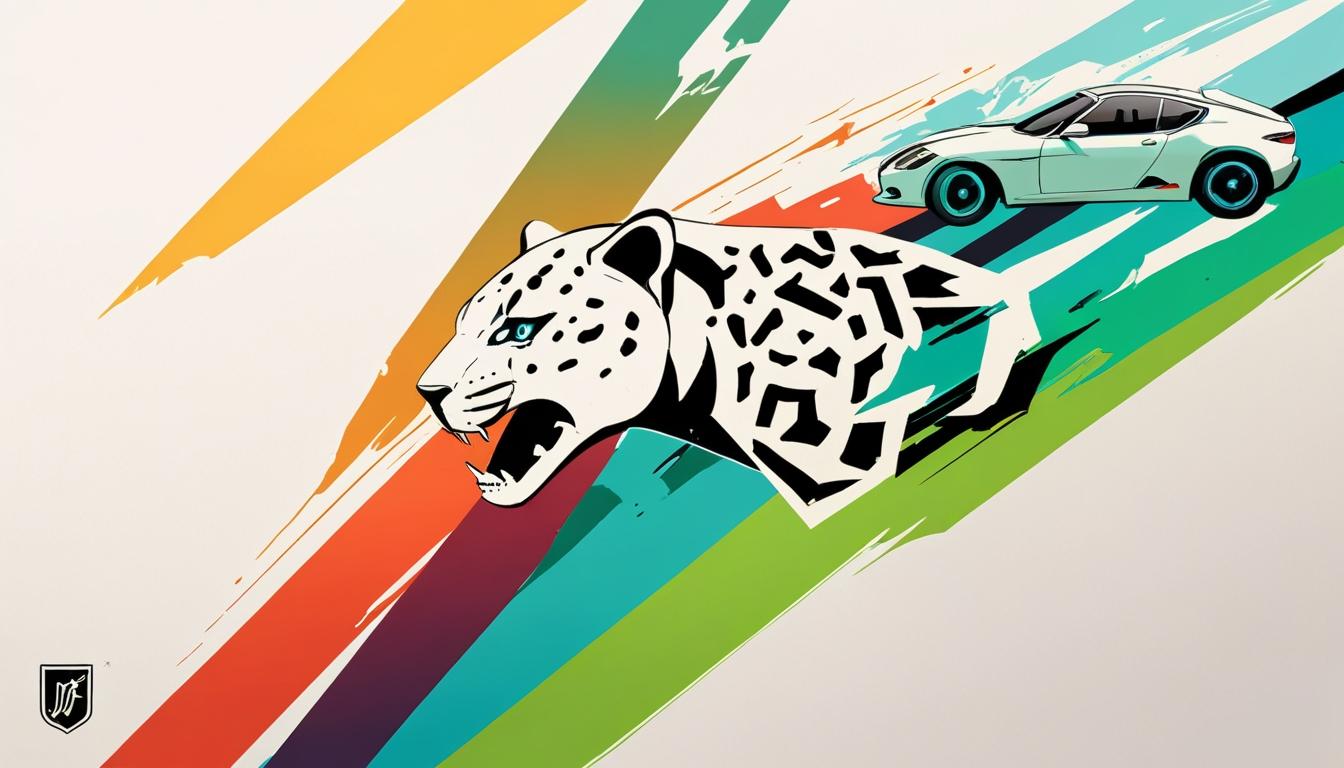Jaguar Land Rover's Controversial Rebranding: Navigating Identity and Sales Challenges
Jaguar Land Rover (JLR) is on the brink of significant change, contemplating a shift in its advertising strategies just months after facing a considerable backlash regarding its recent rebranding efforts. Following criticism of its campaign led by Accenture Song and its in-house agency Spark44, the company has announced a review of its global creative account. This decision comes in the wake of accusations that the campaign represents an abandonment of Jaguar's storied 'jag-man' heritage, a sentiment echoed by prominent figures such as Nigel Farage and Elon Musk.
The rebranding initiative has sought to pivot the company towards an all-electric future. A striking advertisement, which notably featured models in vibrant clothing rather than showcasing Jaguar’s iconic vehicles, has been labelled "bizarre" by commentators. This stark departure from tradition included the elimination of the classic 'growler' cat badge, replacing it with a minimalist emblem composed of geometric shapes representing the letters J and L. JLR’s managing director, Rawdon Glover, defended this unconventional approach, suggesting that if Jaguar adopted the same tactics as its competitors, it would risk being overlooked. “If we play in the same way that everybody else does, we'll just get drowned out,” Glover remarked to the Financial Times.
Despite a clear objective to rejuvenate the brand and engage a younger, affluent demographic, the campaign has nonetheless drawn significant ire. Sales data reflects this discontent, with Jaguar experiencing a sharp sales decline of over 25% in 2024, plummeting to 33,320 units compared to 61,661 in 2022 and 161,601 in 2019. This trend mirrors challenges faced by other brands attempting bold rebranding strategies, such as Nike and Coca-Cola. Most notably, in April 2023, Bud Light faced a public relations crisis following a controversial partnership with a transgender influencer, resulting in boycotts and a stark decline in sales.
Jaguar's rebranding campaign has provoked a plethora of mockery online, with social media users questioning the company’s commitment to its automotive roots. Famed entrepreneur Elon Musk even queried, “Do you sell cars?” on his platform X, highlighting a growing confusion surrounding the brand's new image. The promotional video, characterised by slogans like "live vivid" and "copy nothing," has circulated widely, reaching over 160 million views, yet failing to resonate positively with many viewers.
In a bid to address the critical reception, Jaguar maintained that the decision to review their creative partnerships is not directly tied to public backlash. A spokesperson asserted that the reinvention was designed to attract global attention and elicit passionate reactions, demonstrating the emotional connection many consumers have with the legacy brand. However, opinions remain divided, and industry professionals, such as marketing professor Charles Taylor, urge the brand to lean on its rich heritage rather than pursue a complete overhaul.
As Jaguar transitions away from traditional models and strategies, a strategic halt on new vehicle releases until 2026 aims to centre the brand around its upcoming high-end electric sedans. However, this approach has cast a shadow over JLR's overall market presence, where its Land Rover division continues to thrive, reporting a 3% rise in sales, favouring it as a sought-after SUV brand among varied consumer demographics.
The journey ahead for Jaguar Land Rover will require a careful balance of innovation and heritage respect as it seeks to define its identity in an increasingly electrified landscape. The road to recovery may not be easy, but as the vehicle maker looks to unveil new electric concepts amidst ongoing criticism, one thing is clear: the automotive world will be watching closely.
##Reference Map:
- Paragraph 1 – [1], [2]
- Paragraph 2 – [1], [3]
- Paragraph 3 – [1], [4]
- Paragraph 4 – [5], [6]
- Paragraph 5 – [4], [7]
Source: Noah Wire Services
